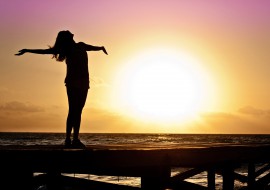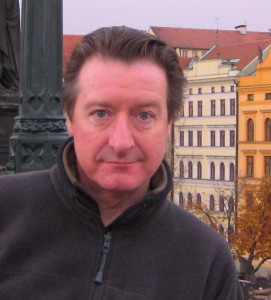The Second Arrow
There’s a two and a half thousand year old story about human reactivity attributed to The Buddha. The story passed down is called The Second Arrow.
The Buddha thought of all the misfortunes that life brings to us and pictured it as if we were being shot by an arrow, driving pain deeply into us. Shakespeare’s line about “the slings and arrows of outrageous fortune” is presaged by nearly two millennia here.
But the Buddha said that for us mortal pain was not enough; in our reactivity a second arrow is shot, a mental arrow fired from ourselves to ourselves-this is our reaction to being hurt or distressed at the wrong end of outrageous fortune, or at times our reaction to our deeply held beliefs being challenged, and is usually made up of a fare amount of self defence, self criticism, self loathing, a feeling that we deserved what happened and in truth deserve more of the same; it’s as if it’s not enough to experience a passing pain or judgement, we need to hold onto to it, to internalise it as a kind of belief or story about us. We can also react in an angry way, lashing out-the challenged or hurt soul hurting back-though often it’s somebody else entirely we lash out to. We turn from pincushions to porcupines in seconds.
There’s a simple way of understanding this with an ARO formula
Action plus reaction equals outcome
Or, whatever happens to me, I react to and a (possibly bad) outcome is produced
However, it’s worth exploring this.
Our reactivity is really all the learnt thinking, feeling and behaviour we’ve amassed over our lifetimes. It’s all our cultural norms, our values, our conditioned responses, in part according to context and upbringing, in part according to being human beings, that become so embedded within us that they only take nanoseconds to spring into (re)action-in that nanosecond lies decades of unconscious assumptions and beliefs about what has to happen next. These are our deeply held “oughts”, “shoulds” and “musts” that command our reactions, that appear to be in control of us; it’s sometimes, in our reactivity, as if the tail was wagging the dog.
But although we cannot often control what happens to us, we can respond differently: we can, over time refuse to fire the second arrow. We can challenge our assumptions, beliefs and stories that are embedded within us so tightly, that we embody in tension, anger, in stressed and rigid sets of attitudes and beliefs that hold us back from living more relaxed, expansive, rewarding and happier lives. The formula changes:
Action plus response equals different outcome
ARO1 to ARO2
Whatever happens to me I respond with mindful reflection, out of compassion and choice, and a better outcome results
Of course, exploring this is hugely difficult for a person on their own; we’re often our own worst enemies when it comes to self inquiry and change, sometimes we need help to see our own set of limiting beliefs, norms, assumptions and reactions about and to the world and how these might be holding us back-who was it who said “the last person to notice the water is the fish”?
Counselling can help you explore and unpack your reactions and help you develop a more accepting and affirmative range of responsive behaviours, thoughts and feelings, so we become more mindful of our reactive thoughts and feelings when the first arrow of life strikes.




